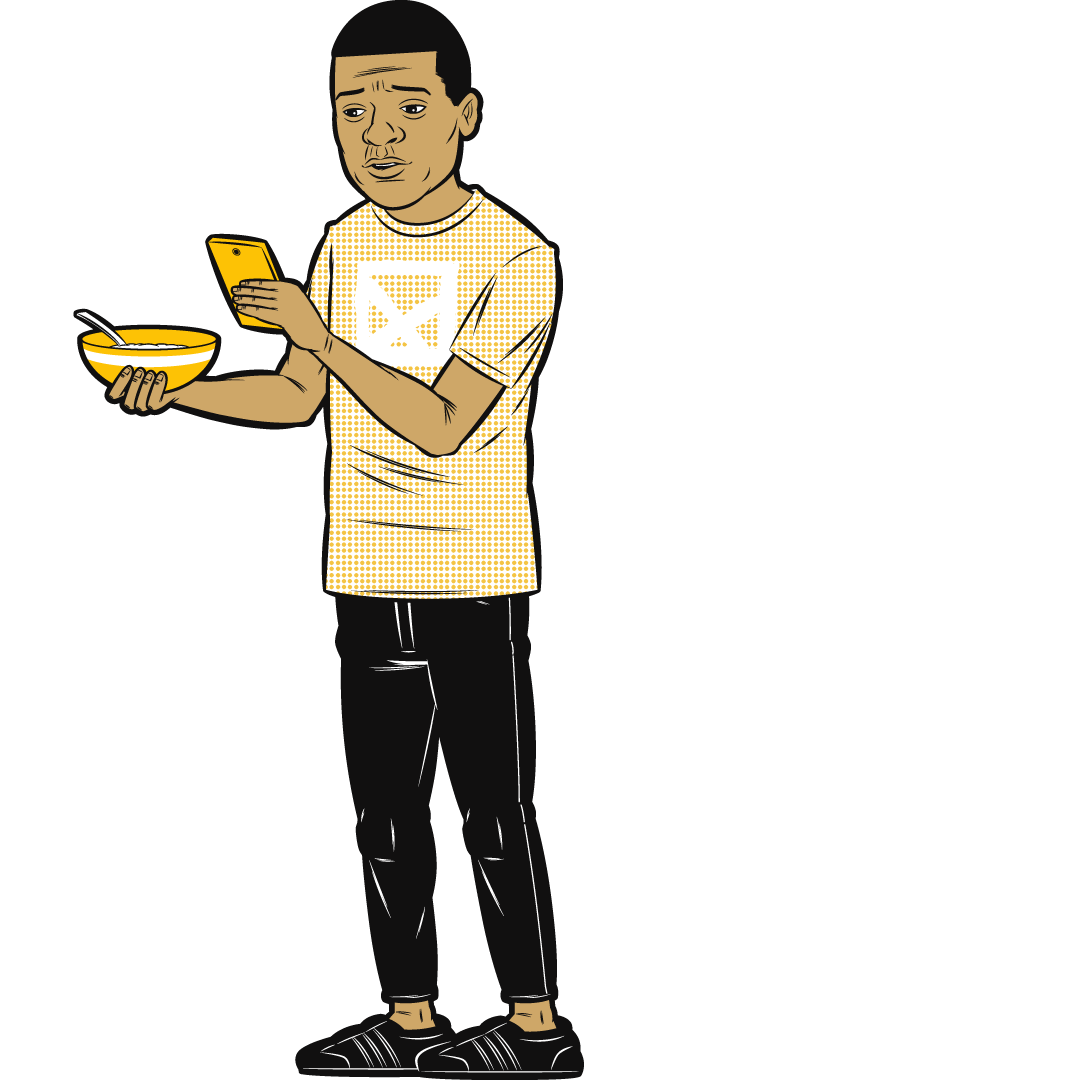
Unterstützung geben
Einfache schritte für wichtige gespräche
Männer fühlen sich manchmal nicht wohl, über die Herausforderungen des Lebens zu sprechen – oder sie denken, sie würden ihre Freunde belasten, wenn sie Unterstützung suchen.
Wenn jemand, der dir wichtig ist, scheinbar eine schwere Zeit durchmacht, spricht er vielleicht nicht darüber, selbst wenn er wollte. Der erste Schritt, auf ihn aufzupassen, ist ihm eine helfende Hand zu reichen.
Mehr erfahren
Wie man sich auf ein schwieriges Gespräch einrichtet
Du kannst die Probleme von einem anderen Menschen nicht lösen, kannst aber für ihn da sein. Manchmal ist es am hilfreichsten, wenn du einfach zuhörst. Nach dem Befinden fragen wird es nicht schlimmer machen. Vergiss nicht, dass es immer eine gute Idee ist, sich vor dem Anfang des Gespräches zu bereiten.
Melde dich kurz bei dir selbst
Bist du in einem guten Bewusstseinszustand?
Hast du Zeit, zuzuhören?
Die Person wird vielleicht nicht bereit sein, darüber zu sprechen – oder, sie will vielleicht mit dir nicht sprechen – kannst du damit leben?
Wenn du nach dem Befinden fragst, bist du darauf vorbereitet, dass die Antwort ‘nicht gut’ ist? Sei du selbst. Du musst kein Berater oder Arzt sein, der Lösungen verordnet – sei einfach du.
Vereinbare einen Termin
Güte Gespräche können irgendwo stattfinden, vereinbare also einen Termin für einen Videoanruf oder einen Plausch von Angesicht zu Angesicht. Manchmal ist es einfacher, ein Gespräch per Text oder Online-Chat anzufangen, und das ist auch in Ordnung.
STARTE EIN GESPRÄCH MIT
ALEC
In vier einfachen Schritten – nutze ALEC, um durch das Gespräch mit jemandem zu führen, der eine schwere Zeit durchmacht.
Danke an die “R U OK?”-Organisation für die Entwicklung des ALEC-Modells.
ASK
Beginne, indem du fragst, wie es der Person geht. Sprich an, dass du eine Verhaltensänderung bemerkt hast. Antwortet sie nicht mehr auf Textnachrichten? Klingt sie anders oder komisch am Telefon? Ist die Person auf einmal stumm in Gruppenchats?Nutze einen Satz, wie: „Du bist in letzter Zeit nicht mehr derselbe Mensch - geht’s dir gut?”
Vertraue deiner Intuition. Denk dran, dass Menschen oft ausweichend auf die Frage nach ihrem Befinden antworten, also traue dich, nachzuhaken.
Du kannst konkret werden und benennen, was dir aufgefallen ist „Du antwortest gar nicht mehr auf meine Nachrichten, das kommt mir komisch vor.“
LISTEN
Gib der Person deine volle Aufmerksamkeit. Lass sie wissen, dass du zuhörst, ohne zu werten. Du musst nicht alles analysieren oder sofort Lösungen aufzeigen, aber indem du nachfragst, zeigst du ihr, dass du zuhörst.Frage z.B.: „Das hört sich anstrengend an – wie lange geht es dir schon so?“
ENCOURAGE ACTION
Unterstütze die Person dabei, sich auf die einfachen Dinge zu konzentrieren, die ihr helfen können. Schläft sie genug? Bewegt sie sich ausreichend und ernährt sich ausgewogen? Vielleicht gibt es etwas, das ihr schon mal in der Vergangenheit geholfen hat? Das Nachfragen kann sich lohnen.Schlage der Person vor, darüber mit weiteren Vertrauenspersonen zu sprechen. Das macht es für euch beide leichter. Und wenn es ihr schon länger als zwei Wochen so geht, schlage ihr vor, mit ihrem Hausarzt darüber zu reden.
CHECK IN
Melde dich im Nachgang eures Gesprächs per Telefon oder Videoanruf. Das zeigt, dass du dich wahrhaftig kümmerst und dir geht es besser, wenn es auch der Person besser geht.Danke an die “R U OK?”-Organisation für die Entwicklung des ALEC-Modells.



Das Online-Tool hilft dir dabei, dich bei wichtigen Gesprächen mit einem Freund, der mit Problemen zu kämpfen hat, sicherer und besser vorbereitet zu fühlen.
